These Mobility Exercises Increase Performance And Flexibility

You’re probably working out for one of two reasons: to get stronger or to get faster. And incorporating strength and cardio into your fitness routine is undoubtedly essential for achieving your best body.
The thing is, you’re missing a key component if you stop there. Mobility is the third component of a holistic fitness regimen that refers to your ability to move and get from one place to another. It’s how well you move and how efficiently you can move.
That last part is key because having stiff and tight muscles will actually hinder your performance and take you longer to achieve some bulging biceps. By incorporating mobility exercises into your routine, you’ll have no difficulty hitting PRs every single day.
It’s not too far of a stretch to add a few of these great mobility exercises to your workout. Let’s get to work and enhance your holistic wellbeing.
Importance of Mobility
The American Council on Exercise (ACE) refers to mobility as the cornerstone of physical fitness. It makes sense when you think about it: if you can’t move your joints, how are you going to flex your muscles as far as they can go?
ACE breaks down mobility into two categories: joint mobility and joint stability. Mobility is the degree to which an area where two bones meet (articulation) can move before being restricted by surrounding tissues. It’s a fancy way of saying your range of motion.
People with good mobility are able to do things like single leg deadlifts with ease, as these require an exceptional range of motion in the hips. The exercises in this list are all about enhancing your mobility.
Stability is the ability to control or maintain joint movement and position. For example, the lumbar spine is a joint that favors stability in the sense that it’s not really meant to move. Rather, the surrounding muscles in the lower back are engaged to keep it nice and straight. It’s one of the reasons why we never want you to bend your back when lifting.
Mobility and stability are two sides of the same coin. Having joints that are able to remain in a fixed position yet are also able to move freely will expand your arsenal of talents and open up the door for you to excel at even more.
Enough chit-chat. Let’s actually learn how to improve mobility through some great exercises.
Dynamic Stretches
Everyone knows the importance of stretching before a workout, and you (hopefully) do it already. The thing is, studies have found that static stretches where you hold a muscle in a flexed position aren’t really that effective at increasing your flexibility.
Instead, dynamic stretches incorporate gentle, controlled movements. These have been found to be very effective at increasing mobility, and therefore your flexibility. Just a few minutes of dynamic stretching before a workout might give you the power to excel at all five of the basic human movements.
Fire Hydrant Hip Stretch
Your hips are a central joint in your body where loads of different joints meet. Having mobile hip joints can effectively enhance your ability to run, do core exercises, or do some killer deadlifts.
The fire hydrant is an excellent dynamic stretch to work your hips, glutes, and core simultaneously.
- Start in a quadruped position (palms and knees on the floor). Keep your hands under your shoulders and hips over your knees.
- Keeping your navel down towards your spine, lift your right leg out to the right side, keeping the knee bent at 90 degrees, and stopping at hip height.
- Return to start. Do three sets of 15 reps on each leg.
Windmill Shoulder and Hamstring Stretch
The windmill stretch is another dynamic warm-up that contributes to flexibility in many different muscles. Your hamstring, shoulders, calves, and hips all get their mobility tested throughout this move.
Here’s how it’s done:
- Feet shoulder-width apart. Hold your left arm above your head with your palm facing inward, let your right arm hang down.
- Slowly lower your right hand straight down between your legs, keeping your legs straight. At the same time, rotate your left hand outward while keeping the arm straight.
- Rotate left hand inward while returning to the starting position. Repeat on the other side.
Stop descending before you start bending your knees. And don’t worry if you can’t reach the floor with that bottom hand. You’ll increase mobility over time.
You can also add weights to your raised hand to incorporate this as a part of your exercise itself.
Bent Arm Chest Stretch
This dynamic stretch can also be done as a static stretch. It gives your chest a lot of love, but it doesn’t forget about the biceps and the triceps, too.
To do a bent arm chest stretch:
- Stand with feet shoulder-width apart.
- Raise your arms up and keep your elbows at a 90-degree angle. Flex your shoulder blades to gently pull your arms behind your back.
- Lower your arms to the starting position and repeat.
Spinal Rotations
While the lumbar spine (lower back) likes to be nice and stable, your thoracic spine (upper back) favors mobility. Think about how your shoulders, ribs, clavicle, etc., are all connected to this area. Having a nice and loose upper back will increase your range of motion. Not to mention, it can help you maintain good posture.
Spinal rotations are a simple dynamic stretch to get that thoracic spine moving.
- Stand with your feet shoulder-width apart. Bring your arms out to the sides at shoulder height.
- Keeping your torso and lower back still, slowly rotate your body back and forth from right to left.
- Repeat about ten to 15 times.
Do this exercise with the Gorilla Bow to add some resistance and strengthen the obliques while you increase your thoracic mobility. It’s a win-win.
Myofascial Release (Foam Rolling)
Dynamic stretches are a great way to enhance your mobility, but it’s certainly not the only way. Foam rolling is a simple and effective way to reduce the risk of myofascial pain syndrome. This is a chronic disorder in which pressure on sensitive points in your muscles causes pain. It’s caused by repetitive contractions of the muscle.
Naturally, having painful muscles limits your range of motion and your ability to perform your very best. So why not throw in some foam rolling in addition to your dynamic warm-up?
In simple terms, using a foam roller against pressure points in the body “turns off” muscle spindle activity in that area. This allows the muscle fibers to stretch and unknot themselves to reduce the risk of soreness and tension later on.
Foam rolling should be done before dynamic stretching to improve the tissue’s ability to lengthen during the stretch. However, it can also be used as part of a cool-down. When looking for foam rollers, you can get one for relatively cheap from your favorite local sports shop.
You can use a roller on most parts of your body, and the movements usually require you to place your body on top of the roller and glide it back and forth along the floor.
For example, you can release tension in your calves by crossing your legs and placing the lower leg on top of the roller. Then, slowly roll your calf along the top of the roller until you find the most tender spot. When you do, hold it for about 30-90 seconds.
The Cool Down
Strength and endurance are two very important factors of physical fitness, but without mobility to match, you won’t be able to achieve your goals. Having flexible, movable joints won’t just reduce your risk of injury. It will also enhance your performance.
The best way to improve your mobility is through a combination of foam rolling and dynamic stretching during a warm-up. Foam rolling helps to release muscle tension and loosen your muscles, allowing you to be more flexible during dynamic movements.
Dynamic stretches like fire hydrants or windmills work many parts of the body and force your muscles to extend in ways that go past their natural maximum flexion. It’s okay if you’re not able to touch your toes right away. Keep practicing, and the results will follow.
Want more tips and tricks to get into the best shape of your life? Pair your Gorilla Bow with the All-Access Membership to gain access to live and on-demand classes to make every workout feel brand new.
Sources:
Joint Mobility and Stability | ACE Fitness
Foam Rolling: Applying the Technique of Myofascial Release | NASM


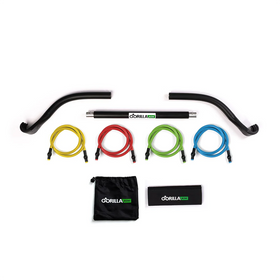
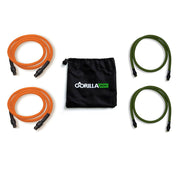
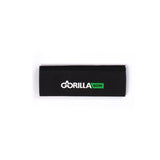
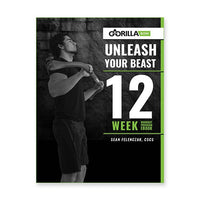
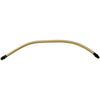


Leave a comment